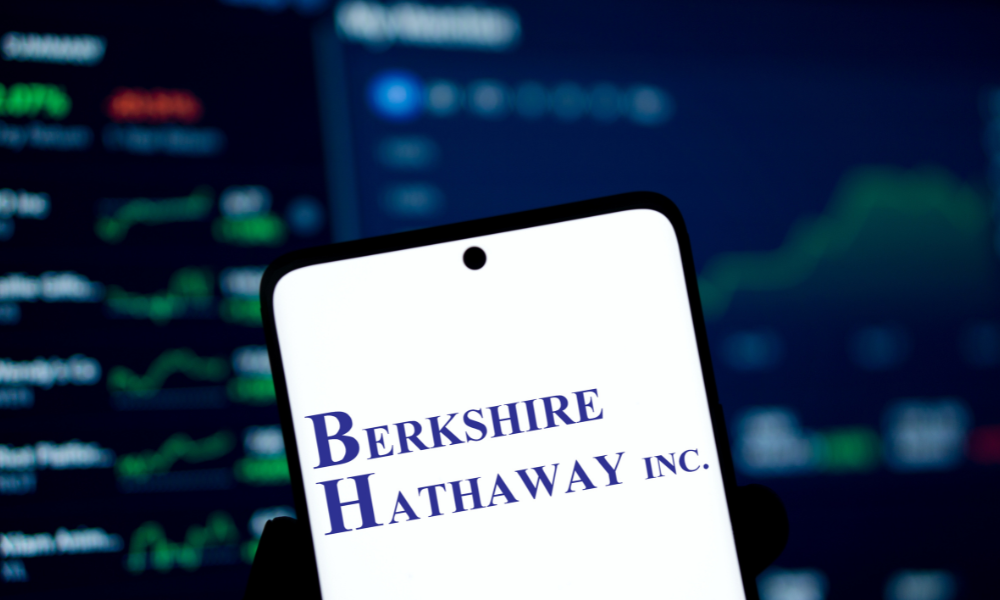Portfolio managers discuss prospects for the company as iconic CEO Warren Buffett prepares to retire

Warren Buffett built Berkshire Hathaway Inc. from a Nebraskan textile business into one of the world’s foremost corporate conglomerates and holding companies, with total assets over $1.5 trillion (USD). In doing so, he articulated a philosophy of long-term value investing that countless advisors and investors swear by and won himself legendary status in the world of finance. Buffett became Berkshire Hathaway’s brand.
At the end of the year, Warren Buffett will step aside for his newly named successor, Greg Abel. Abel, who was born in Edmonton and educated at the University of Alberta, is currently vice-chairman of non-insurance operations at the company, a role he’s held since January of 2018. His transition into the CEO role comes at a time of considerable market upheaval and potential opportunity for the company. It also comes with a significant test in the form of over $348 billion (USD) currently sitting in cash and US treasury bills.
“Abel now inherits a dual mandate: to preserve the unique corporate culture Buffett built while deploying the firm’s substantial $348 billion cash reserve,” says Francis Sabourin, director of wealth management and portfolio manager at Francis Sabourin Wealth Management of Richardson Wealth. “With the cash level they have, they need to deploy it. Berkshire Hathaway looks a bit like a balanced portfolio right now — for good reason — but they can’t keep things that way, because their investors are there for growth, not for cash holdings or money market funds.”
Berkshire Hathaway’s significant cash position was largely entered in 2024 as he saw this year’s market selloff coming. It was a choice that many observers lauded at the time. Sabourin highlights the fact that the sheer volume of T-bills held by Berkshire Hathaway make the firm the 10th largest holder of American government debt, more than India, Switzerland, or Taiwan. He believes that the deployment of this cash over the course of this transition year gives Abel an opportunity to showcase just how closely his own investment philosophy will align with that of his predecessor.
Over the past six decades, Berkshire Hathaway has held to a clear philosophy, preferring companies with less debt, more tangible assets, and prospects of ten to fifteen per cent ROE for Berkshire. Buffett has stated that he wants to be confident that his investments can grow revenue at around a six per cent annual pace over the next five years. Moreover, when forward price to earnings sat over sixteen times earnings, Buffett wouldn’t buy a stock. Hossein Ghaffari Aram notes that the investment landscape has changed so much that we may see those rules tweaked under Abel’s leadership.
“When we look at the technology part of the market now, we’re talking more about revenue growth of 20 per cent and PE of 19x earnings,” Ghaffari Aram, associate portfolio manager at Francis Sabourin Wealth Management, says, “From a macro perspective, you are seeing a fundamental change in the investment landscape.”
Ghaffari Aram highlights that under Buffett, the core technology holding in Berkshire’s portfolio had been Apple. Despite the company’s high PE multiple, Buffett was attracted enough to Apple’s client retention and overall revenue that he built a hugely substantial position between 2016 and 2024. He began trimming that position last year, and Ghaffari Aram asks whether we will see a return to some of Buffett’s preferred value positions during Abel’s transition into the CEO role.
Both Ghaffari Aram and Sabourin are of the view that a significant shift in investment philosophy will likely alienate some of Berkshire Hathaway’s loyal investor base. However, they note that certain developments like the willingness to deploy cash into overseas markets with attractive value qualities — such as Japan — as well as how Berkshire Hathaway capitalizes on future market dislocation events may prove instructive as to Abel’s tenure.
The departure of an iconic CEO can sometimes be a turning point for a company. GE’s fortunes after the departure of Jack Welch paint a more troubling picture of how the end of one leader’s tenure can result in worse outcomes overall. Sabourin notes, however, that Abel’s appointment has been somewhat telegraphed before now. The year-long transition period as well as Abel’s long tenure with Berkshire Hathaway before his appointment speak to a greater degree of continuity. While short-term missteps could get talking heads on CNBC talking, Sabourin says he’ll be watching for that sense of long-term continuity.
“This has been a long-planned process, but obviously we need to see him in action to find out if he will always be in Buffett’s shadow,” Sabourin says of Abel. “He will need to earn his stripes as the CEO of Berkshire Hathaway, but we believe that if the principles don’t change, he should be able to perform decently.”



